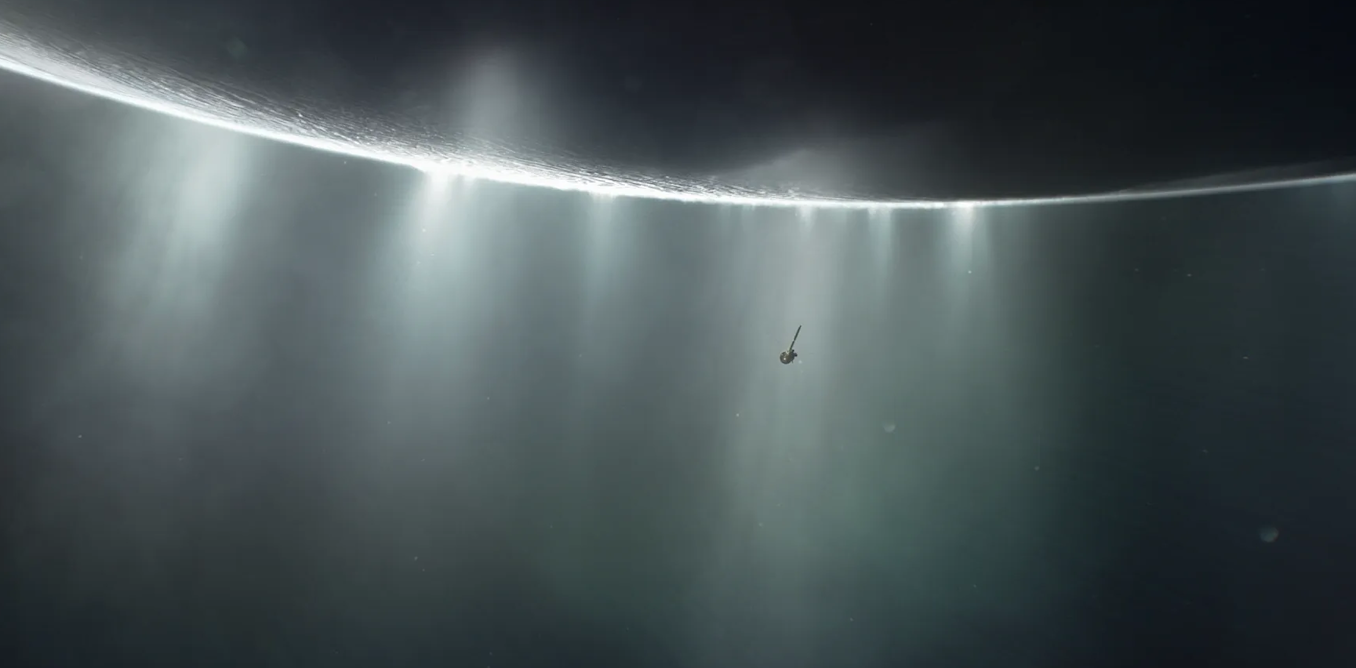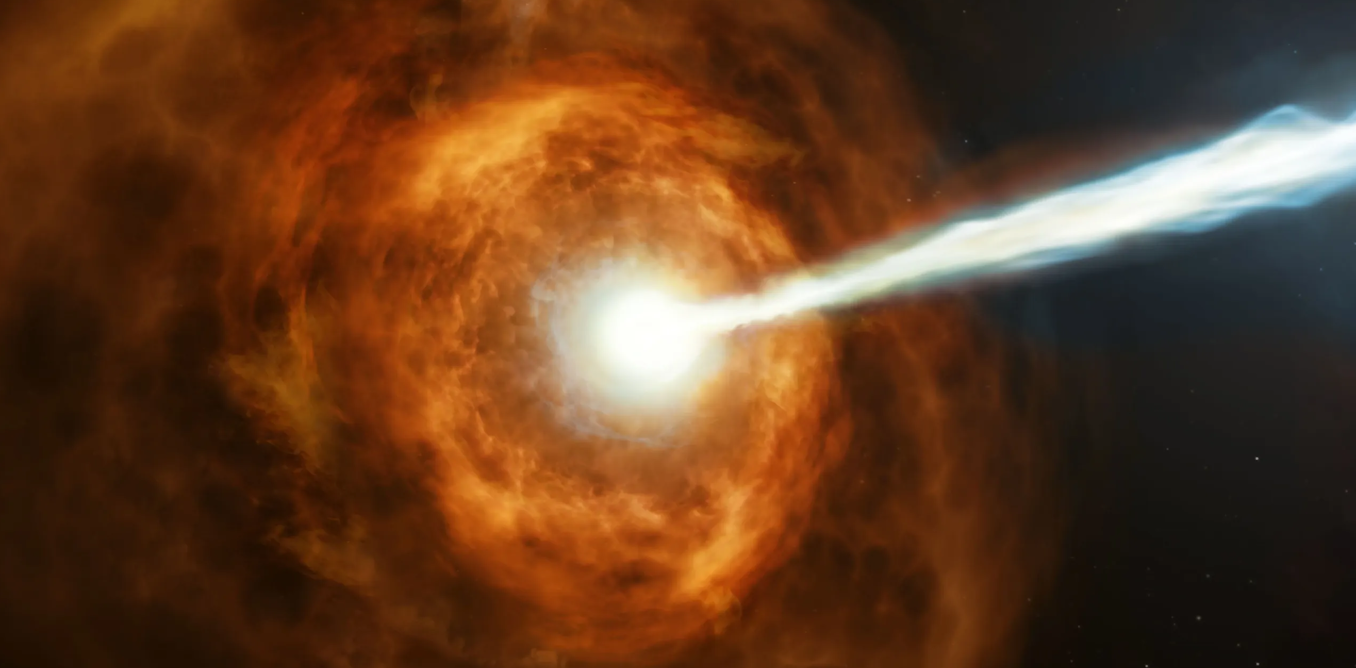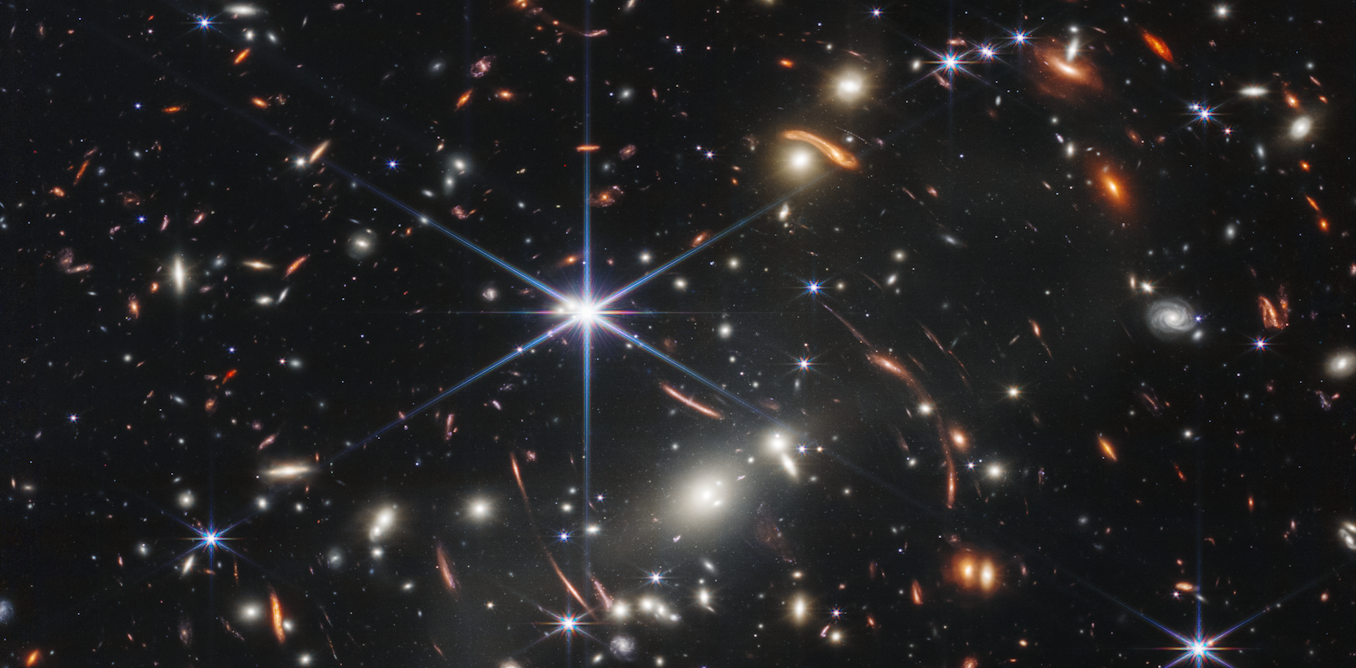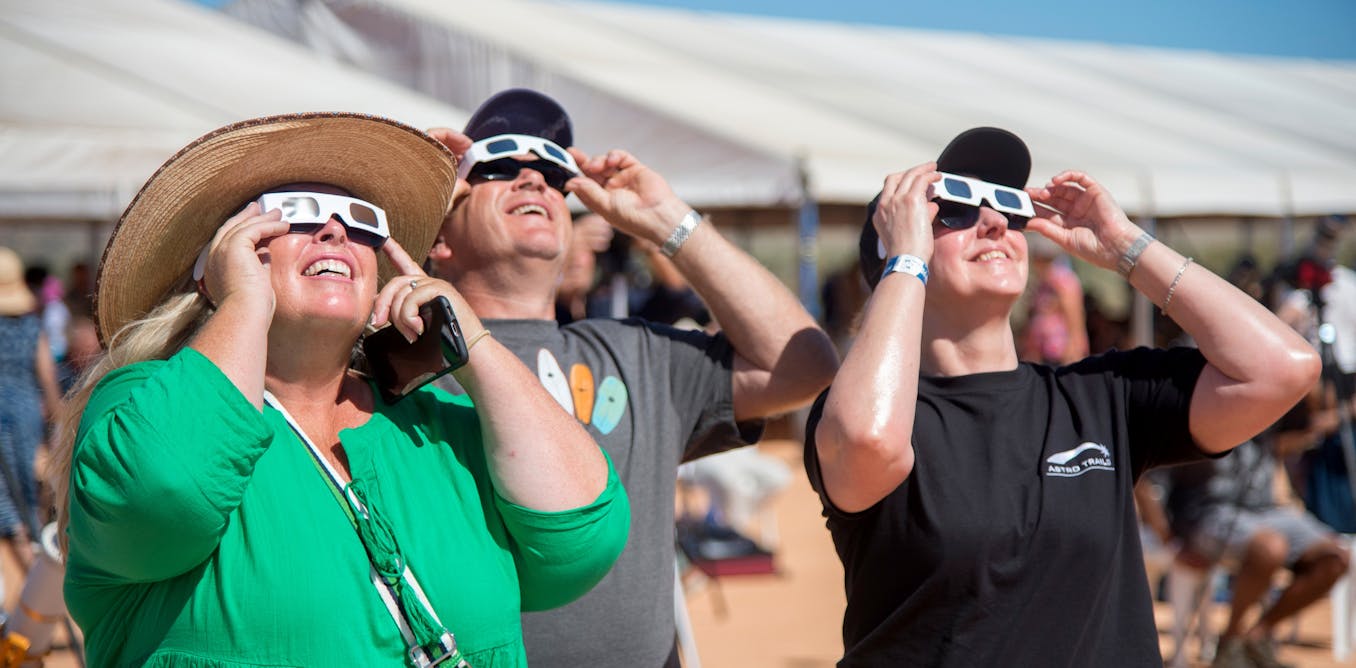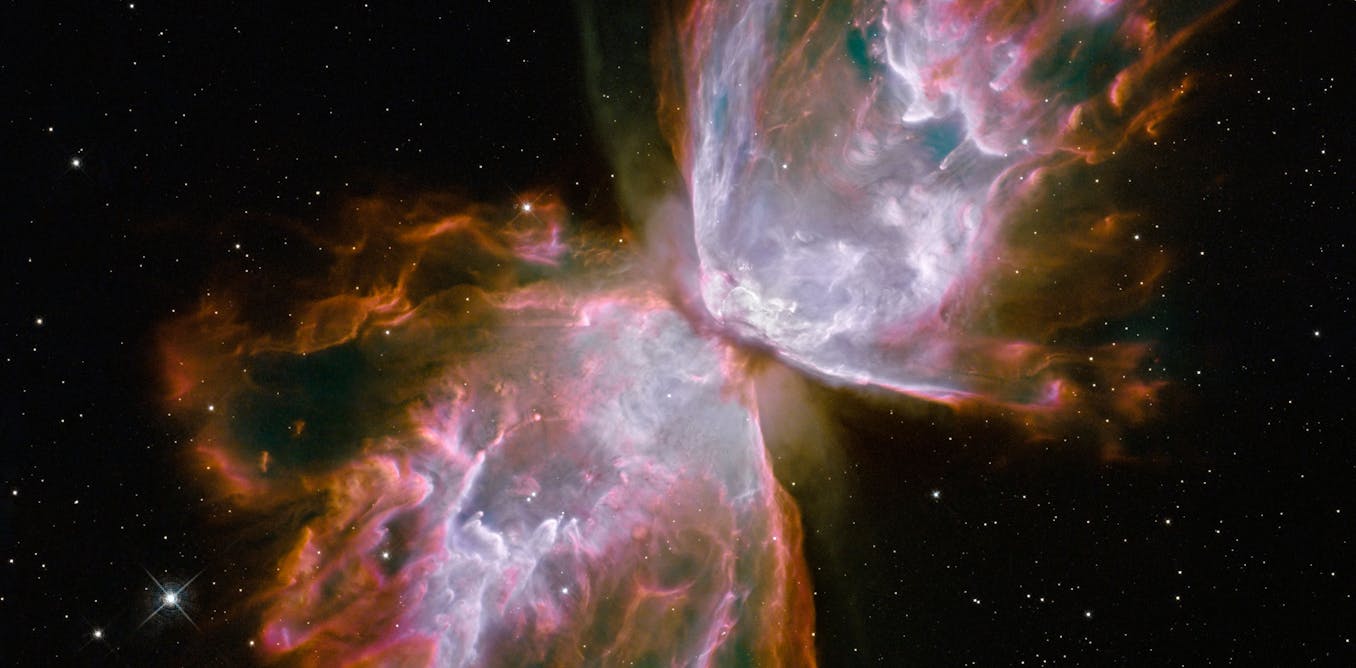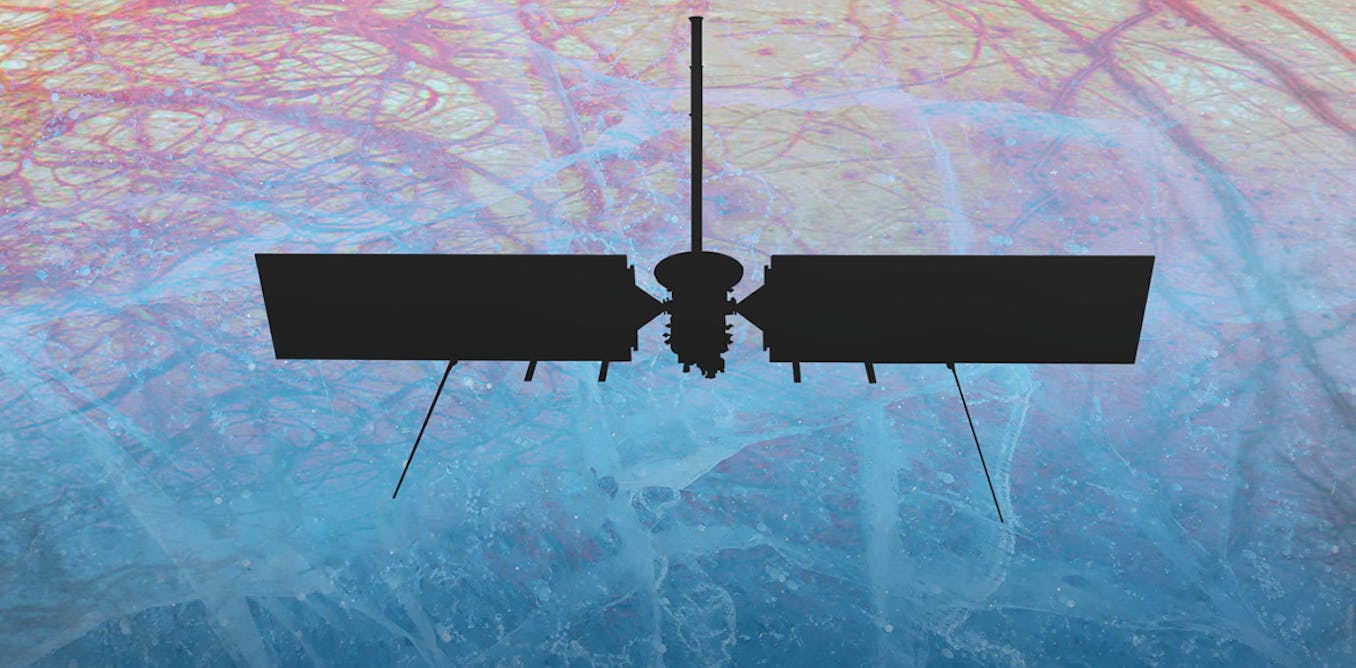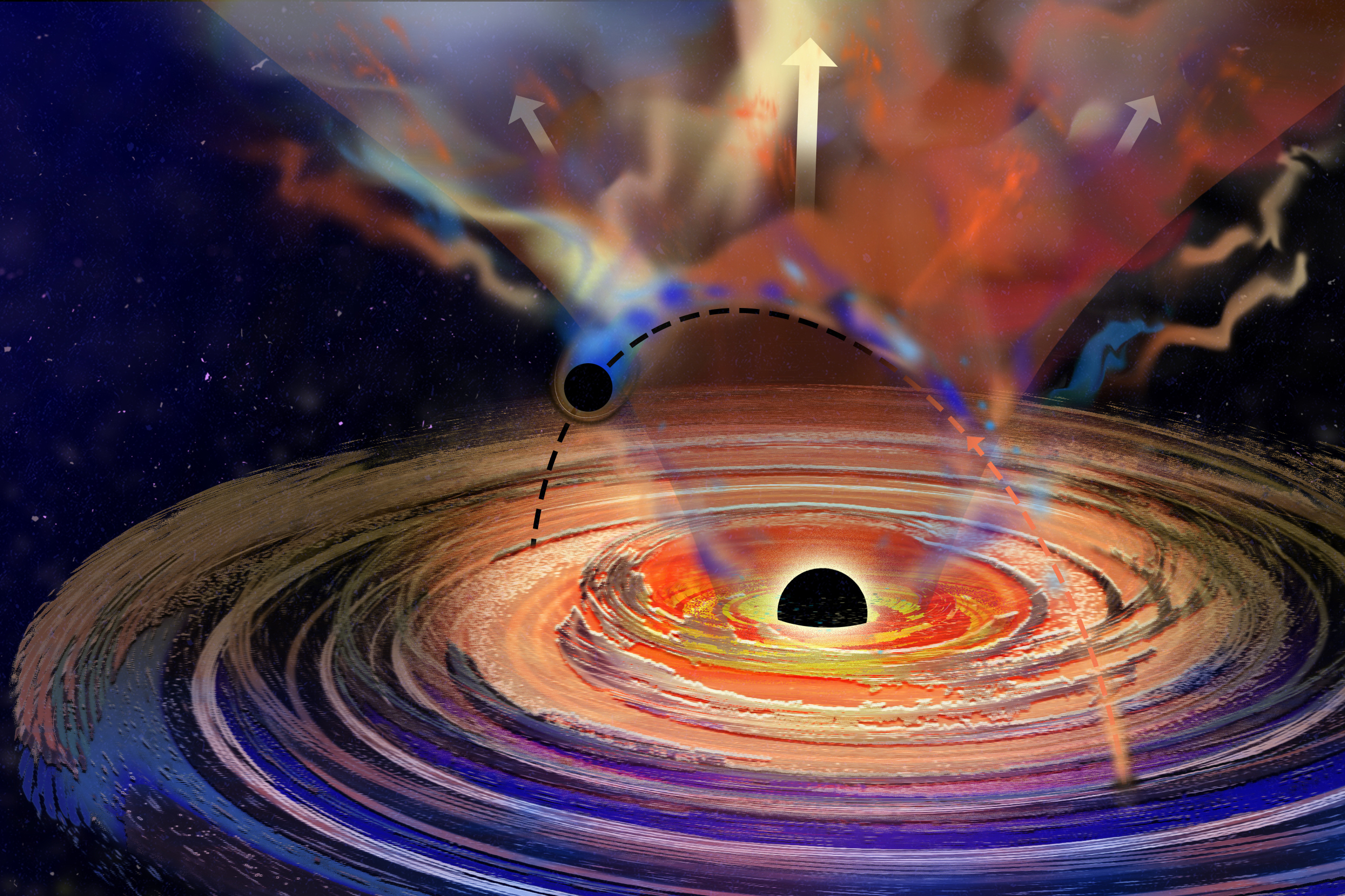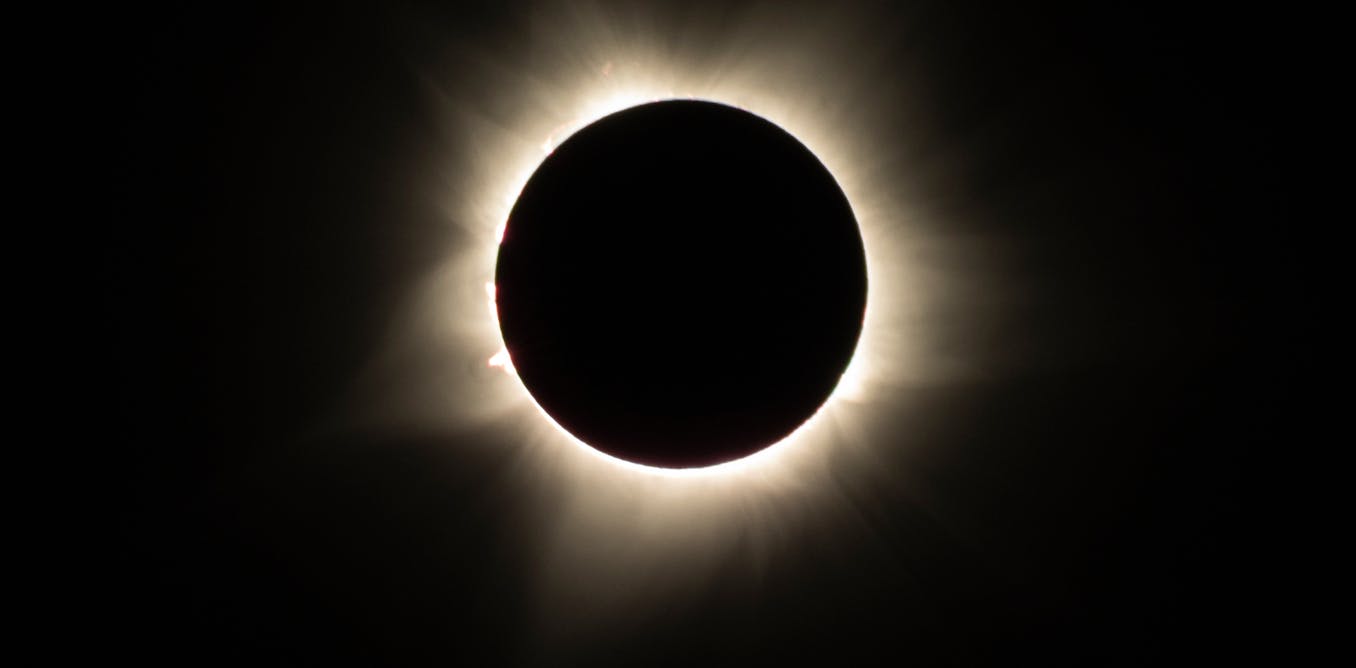Saturn’s ocean moon Enceladus is able to support life − my research team is working out how to detect extraterrestrial cells there
Saturn’s moon Enceladus has geysers shooting tiny grains of ice into space. These grains could hold traces of life − but researchers need the right tools to tell.
April 17, 2024 • ~8 min
Exploding stars send out powerful bursts of energy − I’m leading a citizen scientist project to classify and learn about these bright flashes
Where specialized algorithms fail to classify star-borne pulses, human volunteers with just a little training can step in.
April 16, 2024 • ~7 min
Could a telescope ever see the beginning of time? An astronomer explains
Now out in space for more than two years, the James Webb Space Telescope is a stunningly sophisticated instrument.
April 8, 2024 • ~9 min
Eclipses aren’t just visual spectacles, they are at the heart of scientific efforts to understand distant planets
A type of eclipse is crucial for measuring what’s in the atmospheres of planets orbiting distant stars.
April 8, 2024 • ~6 min
During the 2024 eclipse, biologists like us want to find out how birds will respond to darkness in the middle of the day
Since an eclipse only lasts a few minutes, you need more than just a handful of scientists running around collecting data on bird activity. That’s where a new app comes in.
April 4, 2024 • ~8 min
Exploding stars are rare but emit torrents of radiation − if one happened close enough to Earth, it could threaten life on the planet
Some ancient texts record what were likely dying stars, faintly visible from Earth. If close enough, these events can disturb telescopes and even damage the ozone layer.
March 29, 2024 • ~9 min
NASA’s mission to an ice-covered moon will contain a message between water worlds
Europa Clipper will contain a plaque that celebrates humanity’s relationship with water and a decades-old tradition of searching for life outside Earth.
March 28, 2024 • ~8 min
/
49


